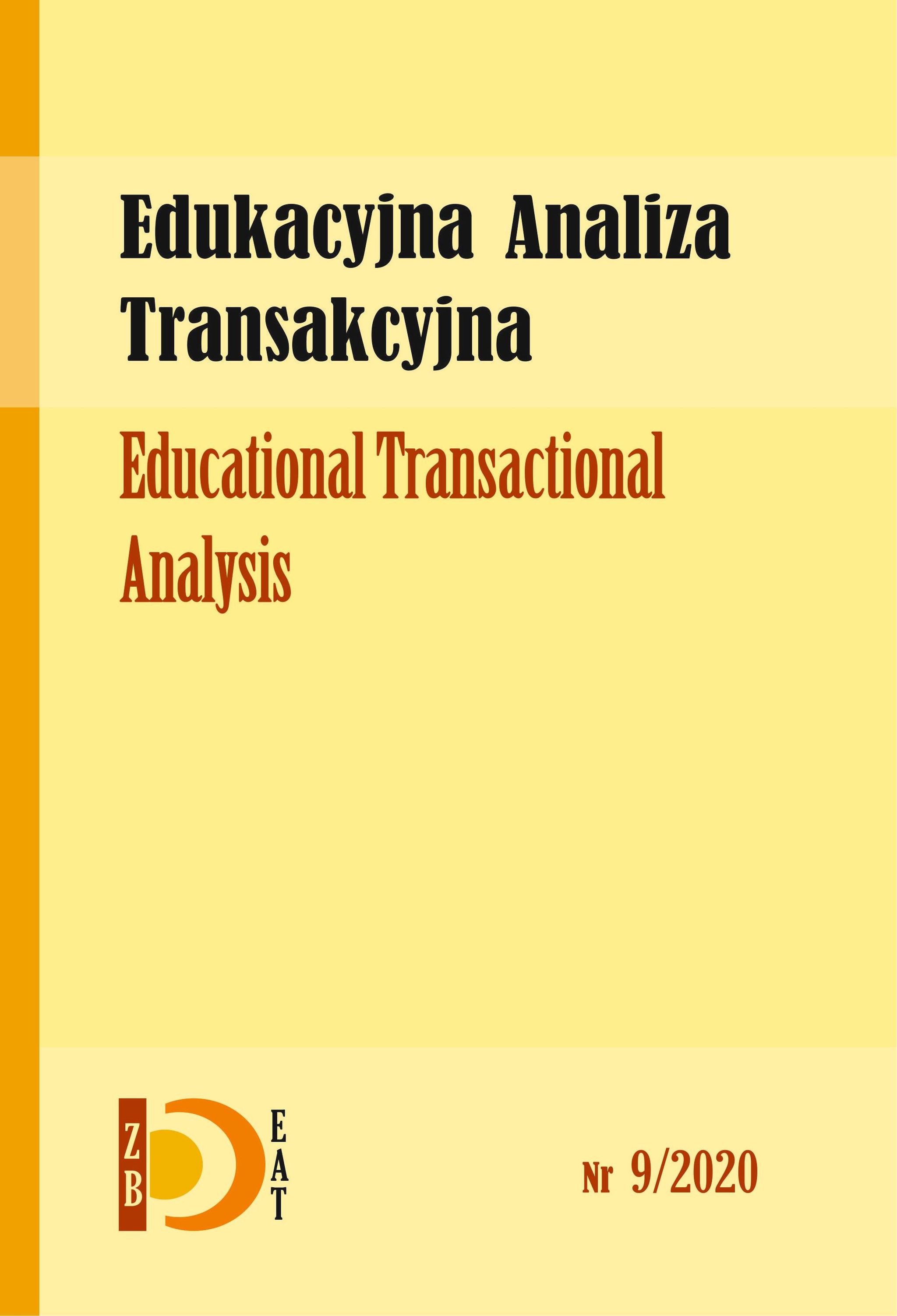Students of pedagogy on social relations at the beginning of the pandemic – in the light of a qualitative analysis of their personal and social reflectiveness
- Authors
-
-
-
Marek Siwicki
The Maria Grzegorzewska University
-
- Keywords:
- Pandemic, COVID-19, lockout, reflectivity, social relationships, family
- Abstract
- The article presents partial results of qualitative research concerning opinions of pedagogy students on the psychological-social situation experienced by people at the time of the COVID-19 pandemic. The necessity of limiting the transmission of the virus sentenced whole societies to home confinement, limited their mobility and people-to-people contacts, brought the world to a standstill. For many, it also became an inspiration to reflect on the current hierarchy of values. 36 students of the Maria Grzegorzewska University were the sample of the research and they were divided into two age groups - those beginning their studies and those finishing them. They were asked to prepare short essays collecting their reflections from the first stage of the pandemic. The texts were analysed in accordance with the research methodology. There were 4 key categories singled out in the students’ utterances, which made it possible to show the group differences in their attitude towards discussed issues. The younger respondents were more concentrated on their personal perspective and their opinions were more emotional and optimistic. The older respondents showed more distance towards reality, their remarks were bitter and targeted the issues of social policy, consumerism and egoism of modern societies, more frequently treating the question of the pandemic not as an end in itself but as a springboard for more thorough social criticism.
- Downloads
-
Download data is not yet available.
- Author Biographies
- References
-
Chudy, W. (2006). Refleksja. W: Pilch, T. Encyklopedia pedagogiczna XXI wieku, t. 5. Warszawa: Wydawnictwo „Żak”.
Dewey, J. (1988). Jak myślimy? Warszawa: Wydawnictwo Naukowe PWN.
Kaniasty, K., Norris, F. (2008). Longitudinal linkages between perceived social support and psychological distress: A test of Sequential Model of social causation and social selection. Journal of Traumatic Stress, Vol. 21, No. 3, pp. 274–281.
Kaniasty, K., Norris, F. H. (2004). Wzlot i upadek utopii: Mobilizacja ideterioracja wsparcia społecznego w sytuacjach klęsk żywiołowych. W: H. Sęk & R. Cieślak (red.), Wsparcie społeczne –stres –zdrowie. Warszawa: Wydawnictwo Naukowe PWN.
Konecki, K. (2018). Studia z metodologii badań jakościowych. Teoria ugruntowana. Warszawa: Wydawnictwo Naukowe PWN.
Prensky, M. (2001). Digital Natives, Digital Immigrants. On the Horizon, October 2001, 9 (5). Lincoln: NCB University Press.
Sztompka, P. (2016). Kapitał społeczny. Teoria przestrzeni międzyludzkiej. Kraków: Znak.
Tchorzewski, de, A. M. (2016). Wstęp do teorii wychowania. Kraków: Wydawnictwo Naukowe Akademii Ignatianum w Krakowie.
- Downloads
- Published
- 2020-12-30
- Issue
- No. 9 (2020)
- Section
- On the border of fields
- License
-
Copyright (c) 2021 Sylwia Galanciak, Marek Siwicki

This work is licensed under a Creative Commons Attribution 4.0 International License.
AUTHOR'S STATEMENT
I am aware that the Educational Transactional Analysis journal is published under a Creative Commons license - Attribution (https://creativecommons.org/licenses/by/4.0/legalcode).
By submitting the article, I agree to make it available under this license
How to Cite
Similar Articles
- Sylwia Galanciak, Marek Siwicki, The Pandemic as an impulse for the reflections of pedagogy students – the point of view of qualitative analysis , The Educational Transactional Analysis: No. 10 (2021)
- Anna Pierzchała, Family situation in childhood and adolescence and scripting in terms of transactional analysis. Research report , The Educational Transactional Analysis: No. 11 (2022)
- Zbigniew Łęski, Remote learning from the perspective of students life positions , The Educational Transactional Analysis: No. 10 (2021)
- Anna Pierzchała, Emotional Intelligence and Reflexivity vs. Passivity in the Perspective of Transactional Analysis: A Research Report , The Educational Transactional Analysis: No. 13 (2024)
- Krystyna Moczia, Marta Niemiec, Alone with the Pandemic. Maintaining the status quo among the MOPS wards who run private households , The Educational Transactional Analysis: No. 11 (2022)
- Karol Motyl, Let's work or play game! The teachers' lounge in the light of transactional analysis theory , The Educational Transactional Analysis: No. 14 (2025)
- Milena Miałkowska-Kozaryna, Do Studies Provide Knowledge, Skills, and Social Competences – Are You Sure? , The Educational Transactional Analysis: No. 13 (2024)
- Paulina Piasecka, mgr, Relacje międzyludzkie w dramacie Herberta Bergera Gdy mały ptaszek wypadnie z gniazda. , The Educational Transactional Analysis: No. 2 (2013)
- Edyta Halista-Telus, Iwona Zychowicz, Agency and community orientation and socialparticipation of young people aged 14 to 19 –research report , The Educational Transactional Analysis: No. 14 (2025)
- Sabina Pawlik, Magdalena Wala, It’s not that I'm "abnormal". Social and emotional experiences of women with autism spectrum (AS) related to the diagnosis in adulthood , The Educational Transactional Analysis: No. 13 (2024)
You may also start an advanced similarity search for this article.
Most read articles by the same author(s)
- Agnieszka Kolek, Sylwia Galanciak, Problematic internet use and young adult mental health , The Educational Transactional Analysis: No. 13 (2024)
- Sylwia Galanciak, Marek Siwicki, The Pandemic as an impulse for the reflections of pedagogy students – the point of view of qualitative analysis , The Educational Transactional Analysis: No. 10 (2021)


